Top 5 webinar KPIs to measure success: Your guide to measure right
Unlock your webinar's full potential. Dive into our full guide to understand, track, and optimize webinar KPI:s. Measure right - and level up your webinars.
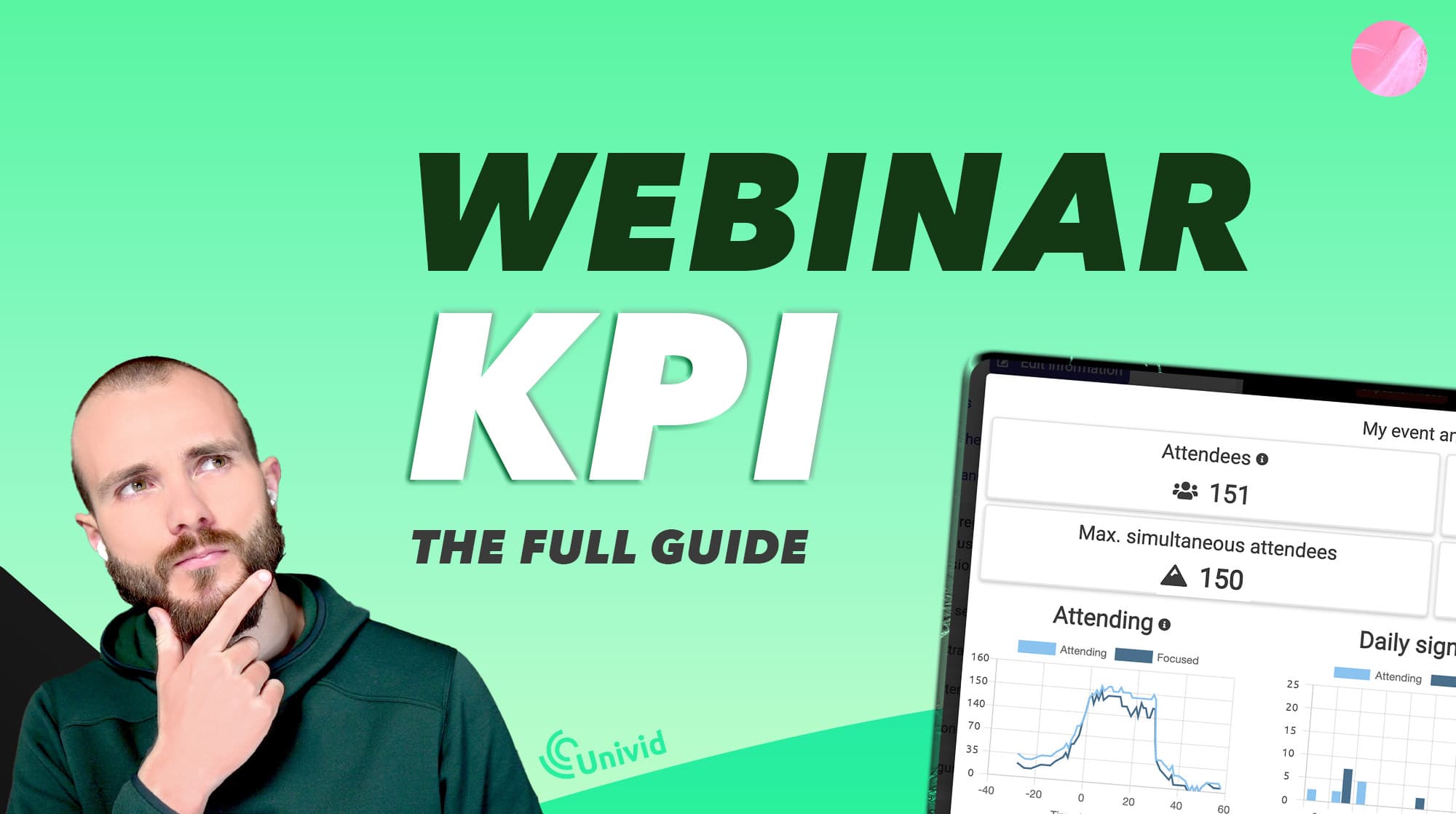
Contents
Introduction
Webinars are an exceptional tool in today's digital marketing landscape, particularly for SaaS companies aiming to engage their audience effectively. However, to utilize webinars to their fullest and improve over time - it is key to measure and understand your webinar KPIs (Key Performance Indicators). And to measure the right KPI:s.
Understanding Webinar KPIs
Firstly, let's define what Webinar KPIs are. These are quantifiable measures used to gauge the success and efficiency of your webinars. Monitoring these metrics helps you make data-driven decisions to optimize your webinar strategy.
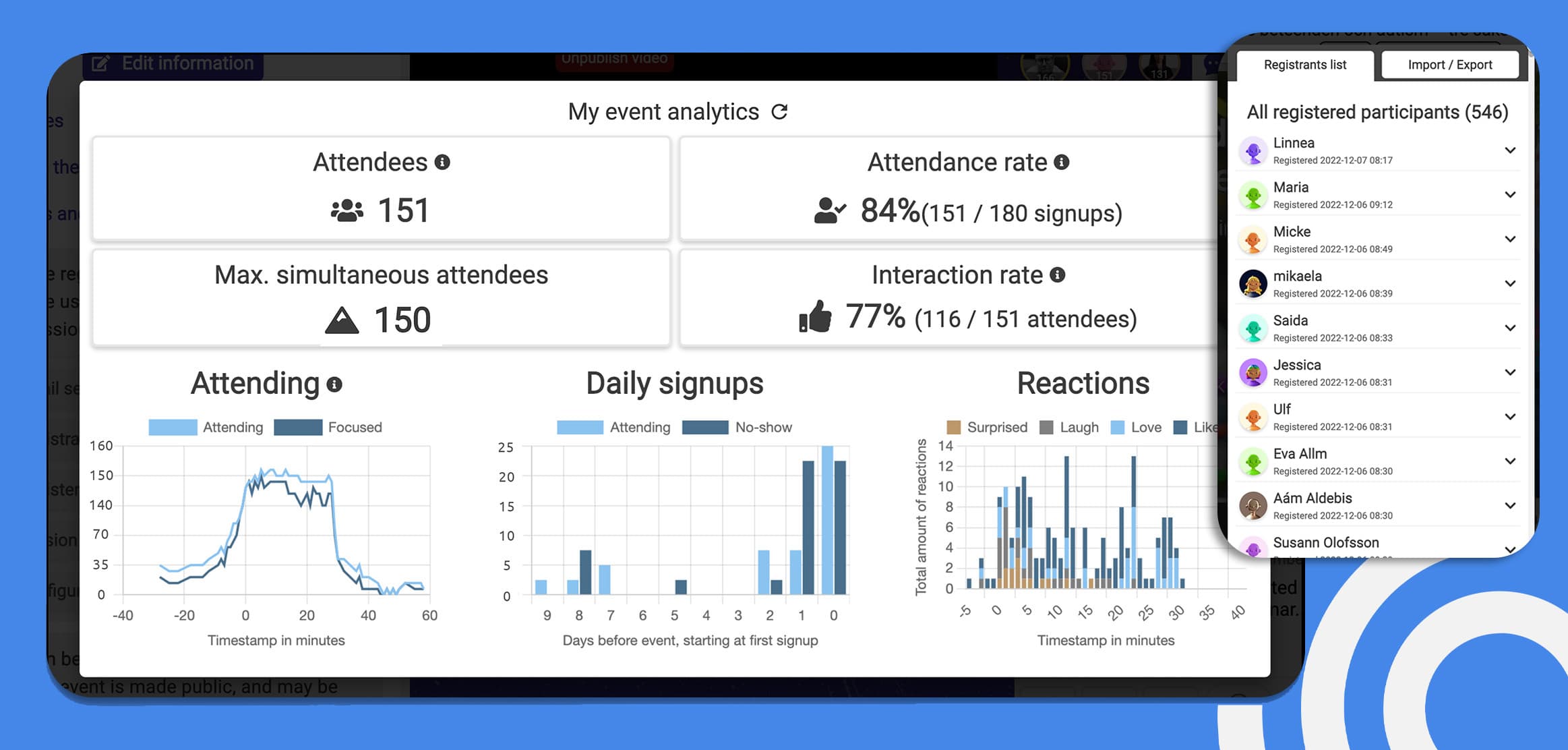
The Univid webinar dashboard with statistics and KPI:s
Critical webinar KPI:s
One of the most popular Webinar KPIs is the 'attendance rate'. This metric provides insight into the number of people who registered for your webinar and actually attended it. A high attendance rate normally signifies that your topic is interesting and your promotional efforts are working.
Another critical webinar KPI is the 'Engagement Rate', which is measured by analyzing the interactions of your attendees during the webinar. These interactions can include poll responses, questions asked, or social media shares.
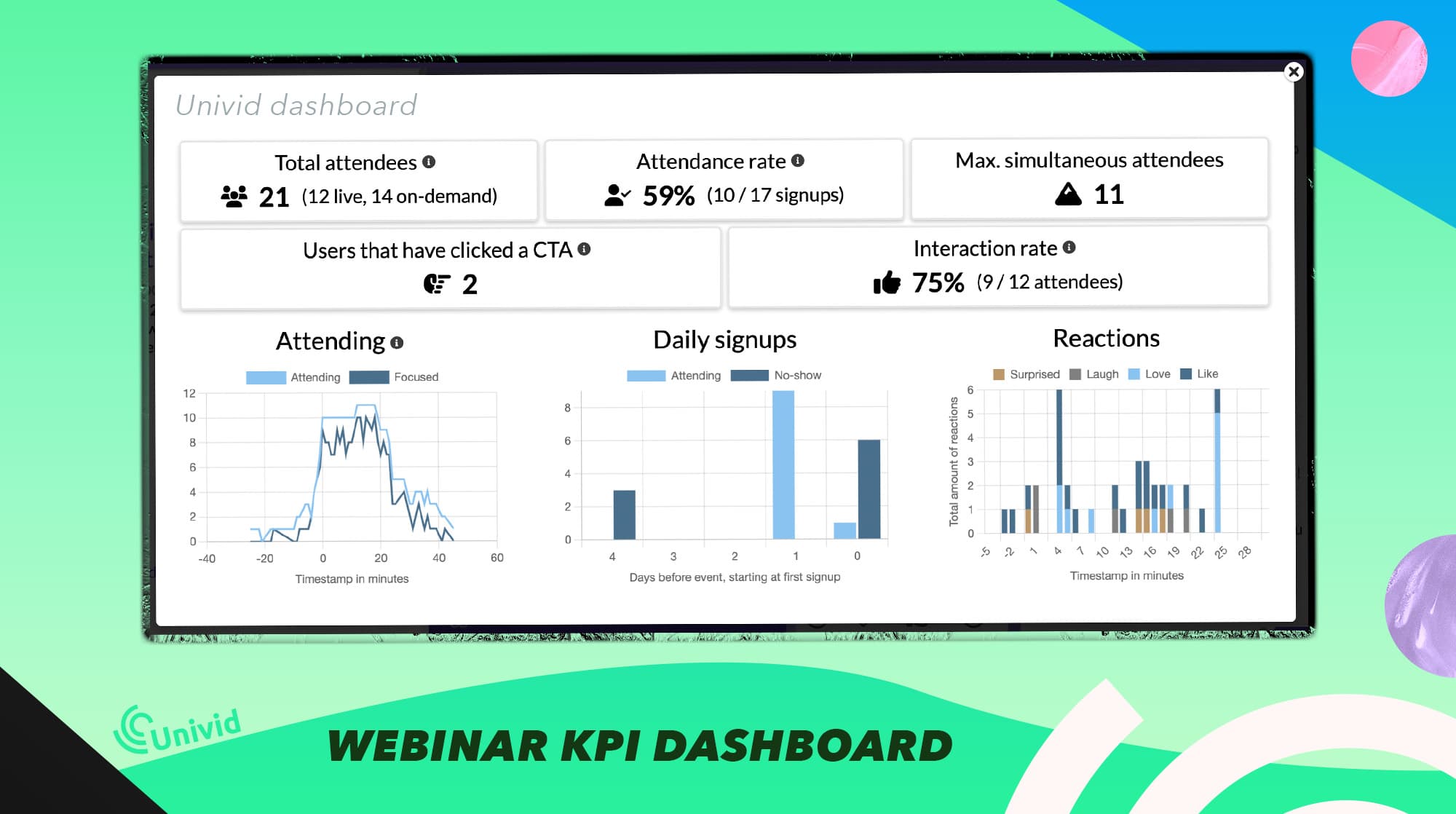
The 'Conversion Rate', another major webinar KPI, measures the percentage of webinar attendees who took the desired action—be it making a purchase, downloading a resource, or signing up for a trial.
Top 5 KPIs to Measure for Your Webinar's Success
It's important to measure several KPI:s to get a nuanced picture of your webinar outcome. But equally important is to not get lost in the data - and focusing in on measuring and improving on a few key KPI:s.
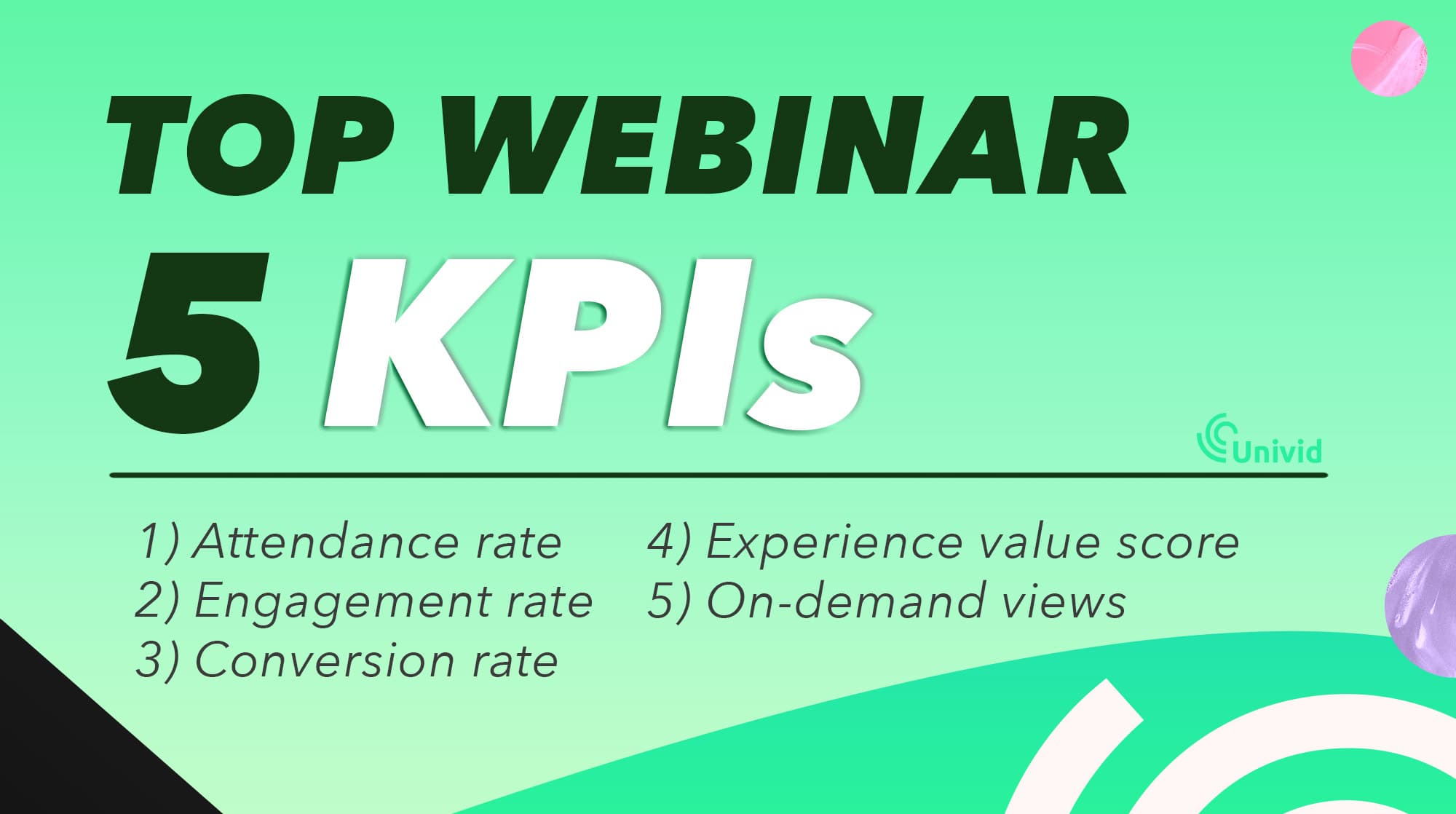
Here are the 5 most important KPIs to measure to host successful webinars.
Webinar KPI | What it measures |
|---|---|
Attendance rate | Ratio of registrants that show up. |
Engagement rate | Ratio of attendees that interact. |
Conversion rate | Ratio of attendees that click CTA. |
Experience value score | Attendee satisfaction. |
On-demand views | Views after live webinar. |
The top 5 webinar KPI:s and what they measure.
Let's break down each metric in detail, and how to improve it.
1. Attendance rate
Attendance rate is the ratio of the number of attendees to the number of registered participants.
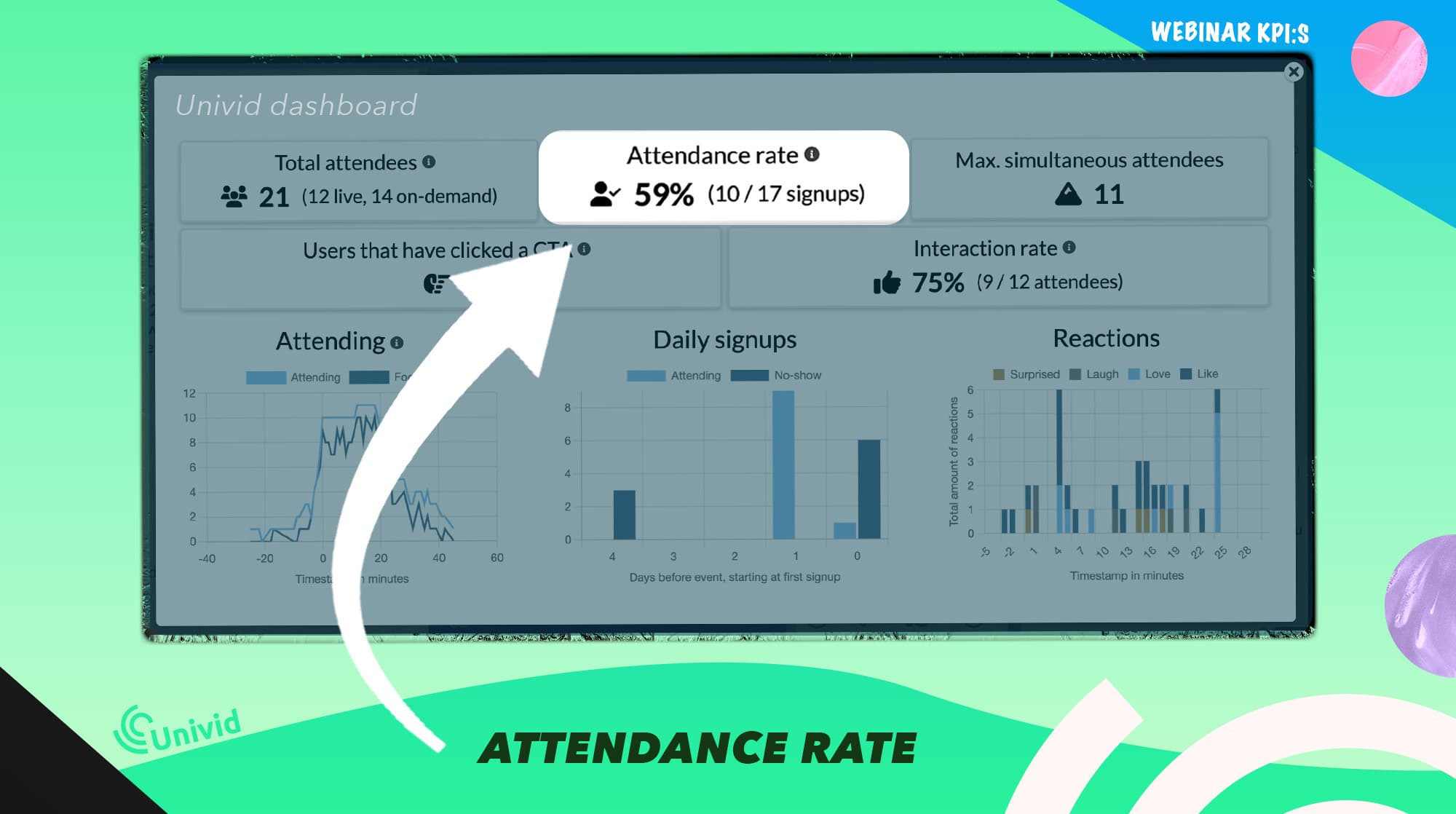
If this number is low, it may indicate that your marketing strategies or subject matter is not engaging enough to attract the registered participants. Boosting promotion efforts and making the webinar topic more relevant may lead to an increased attendance rate.

2. Engagement rate
Engagement rate or interaction rate is the ratio of the number of active attendees to the total number of attendees.
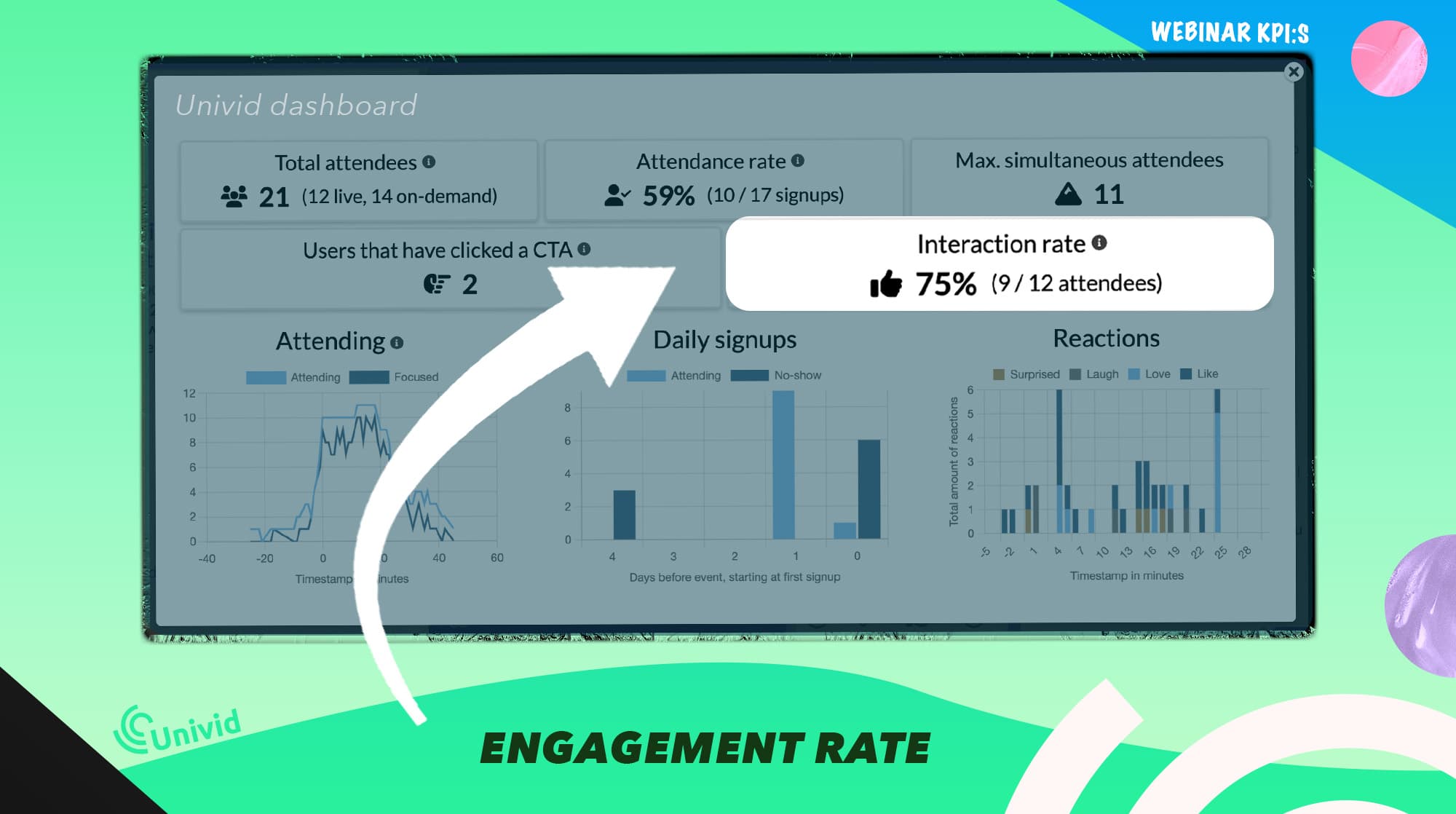
Measuring attendee interactions like comments, questions, poll responses, or social shares will provide an indication of your audience's engagement level. The more interactions, the higher is the interest level of your audience in your content.
3. Conversion rate
This is the ratio of attendees taking desired action such as subscribing, making a purchase, downloading a resource, etc., to the total number of attendees.
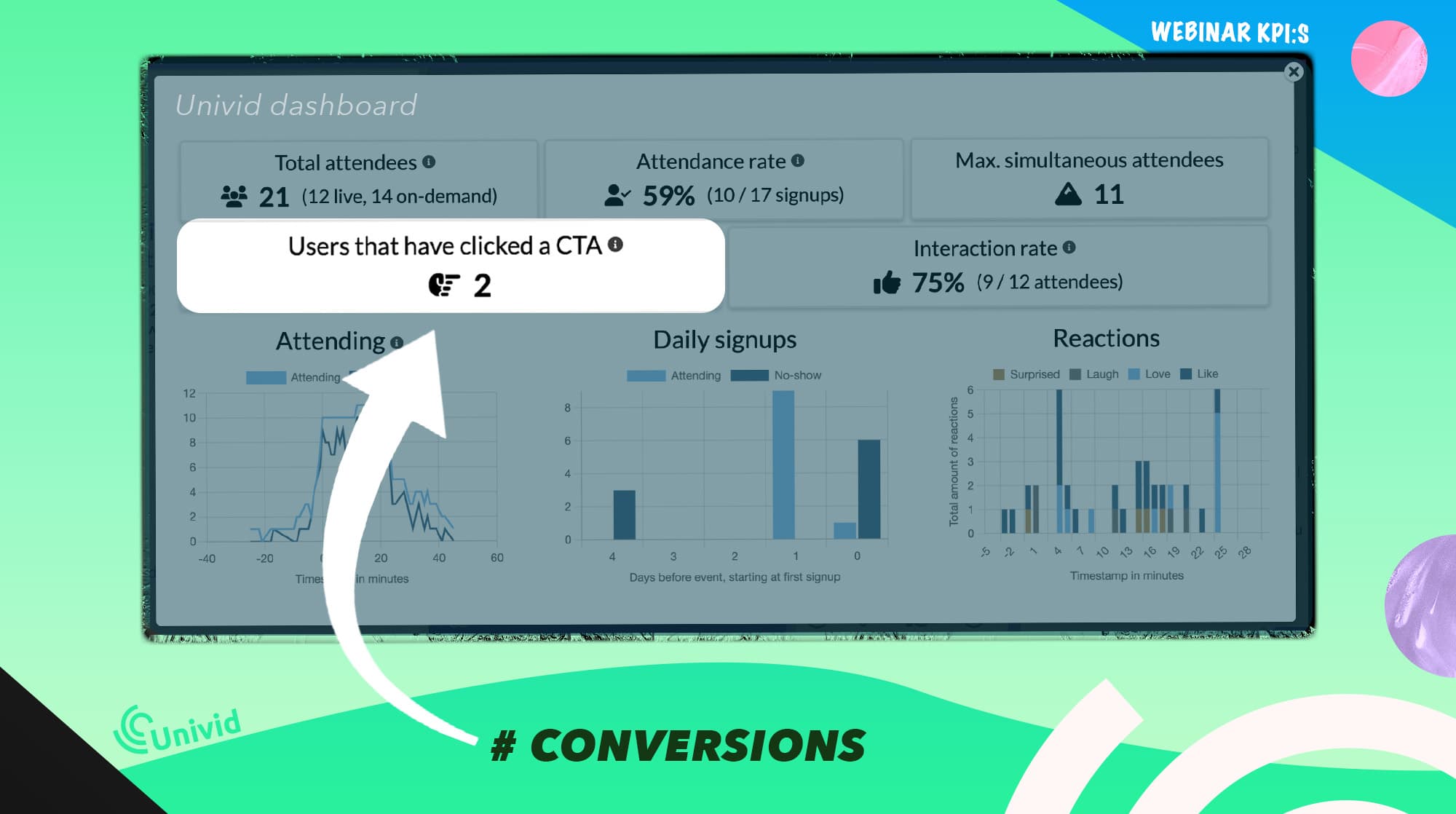
The conversion rate is a crucial KPI as it directly gauges the effectiveness of your webinar in driving the preferred audience response and next step. Number of conversions (or conversion rate) also makes ROI concrete for your webinar.

Typically, the conversion rate is measured by clicks on the CTA buttons vs. number of attendees.
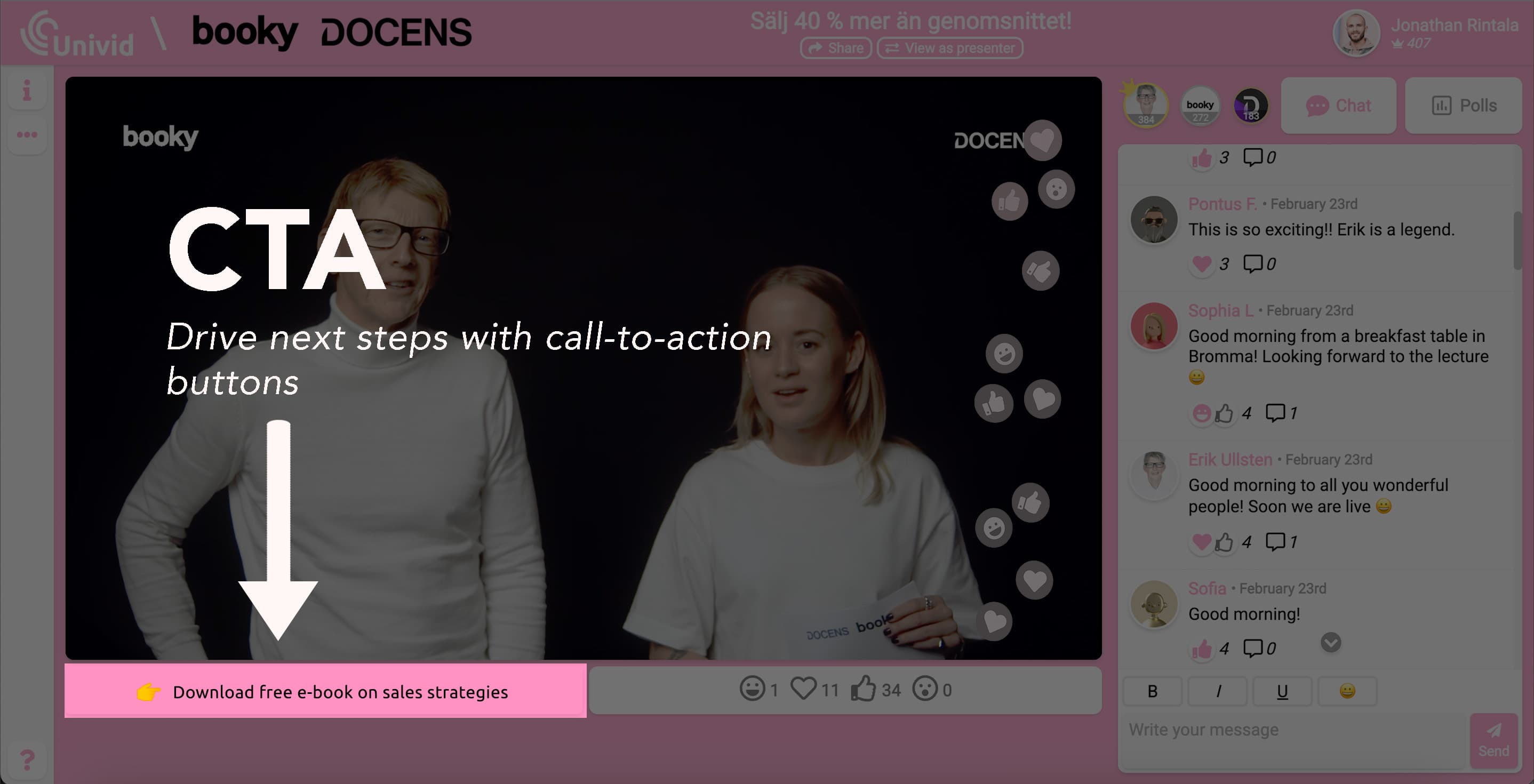
Example: Maybe only 2 participants converted - but for an enterprise SaaS with high CAC, maybe these were two potentially huge customers that you can now book a demo with and close 50% of, i.e. +1 new large contract that returns the entire webinar activity cost for the entire year.
4. Experience Value Score (EVS)
Post-webinar surveys can help you measure how your attendees rate their experience.
Experience Value Score or attendee satisfaction score is KPI can bring incredibly insightful feedback relating to the content, speaker, duration, platform ease of use, etc. EVS is easy to measure as it simply requires to ask each participant "was the event worth your time". Either via an email survey post-webinar, that you can automatically enable in webinar platforms like Univid (using the Lyyti integration).
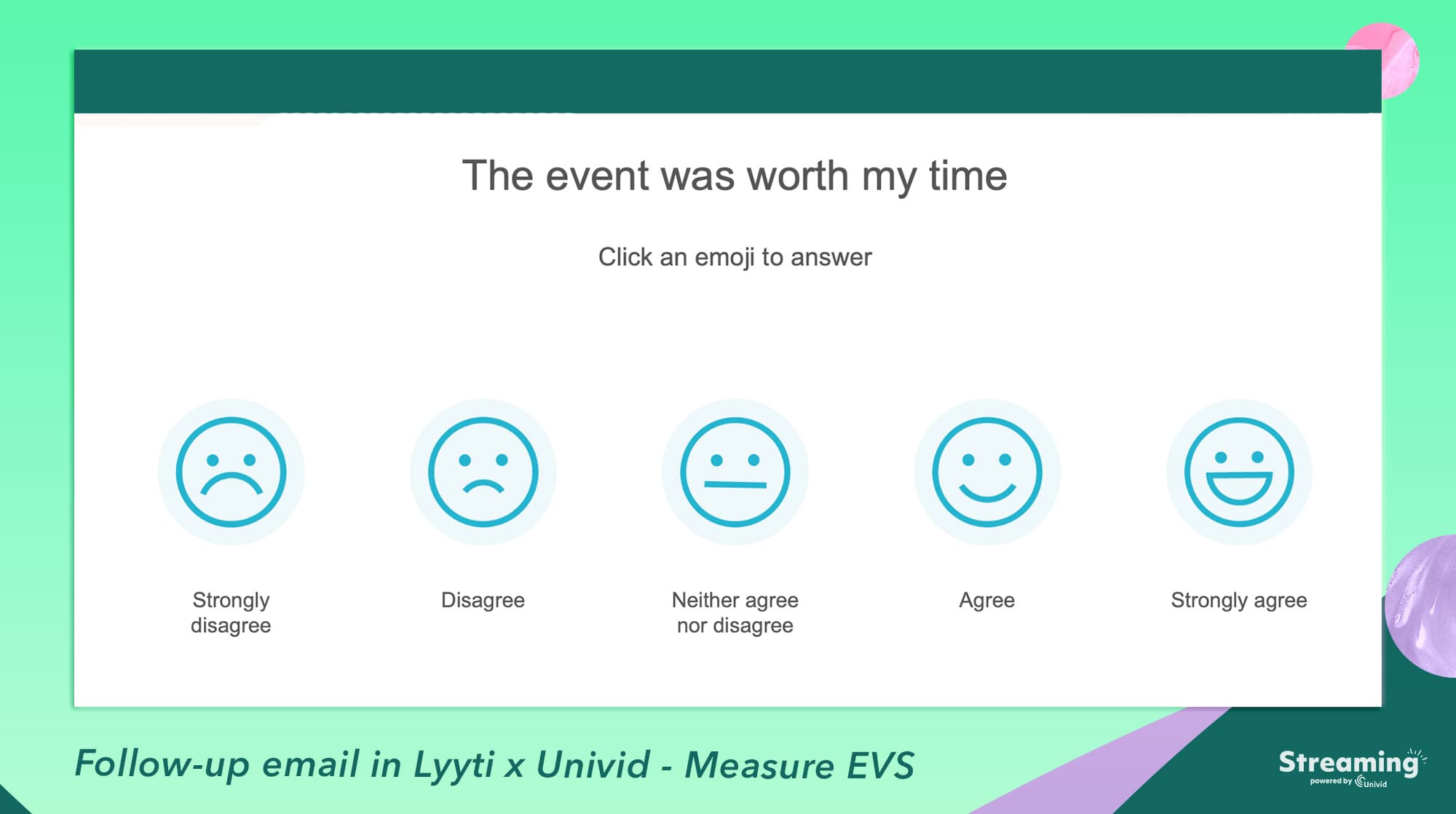
Attendee satisfaction can also be measured through feedback polls during the webinar, which tend to have a high response rate.
5. On-demand views
This KPI measures how many times your webinar was viewed after the live session. It sheds light on the lasting value of your content and can offer an opportunity to engage with your audience and potential leads even after the webinar has ended.
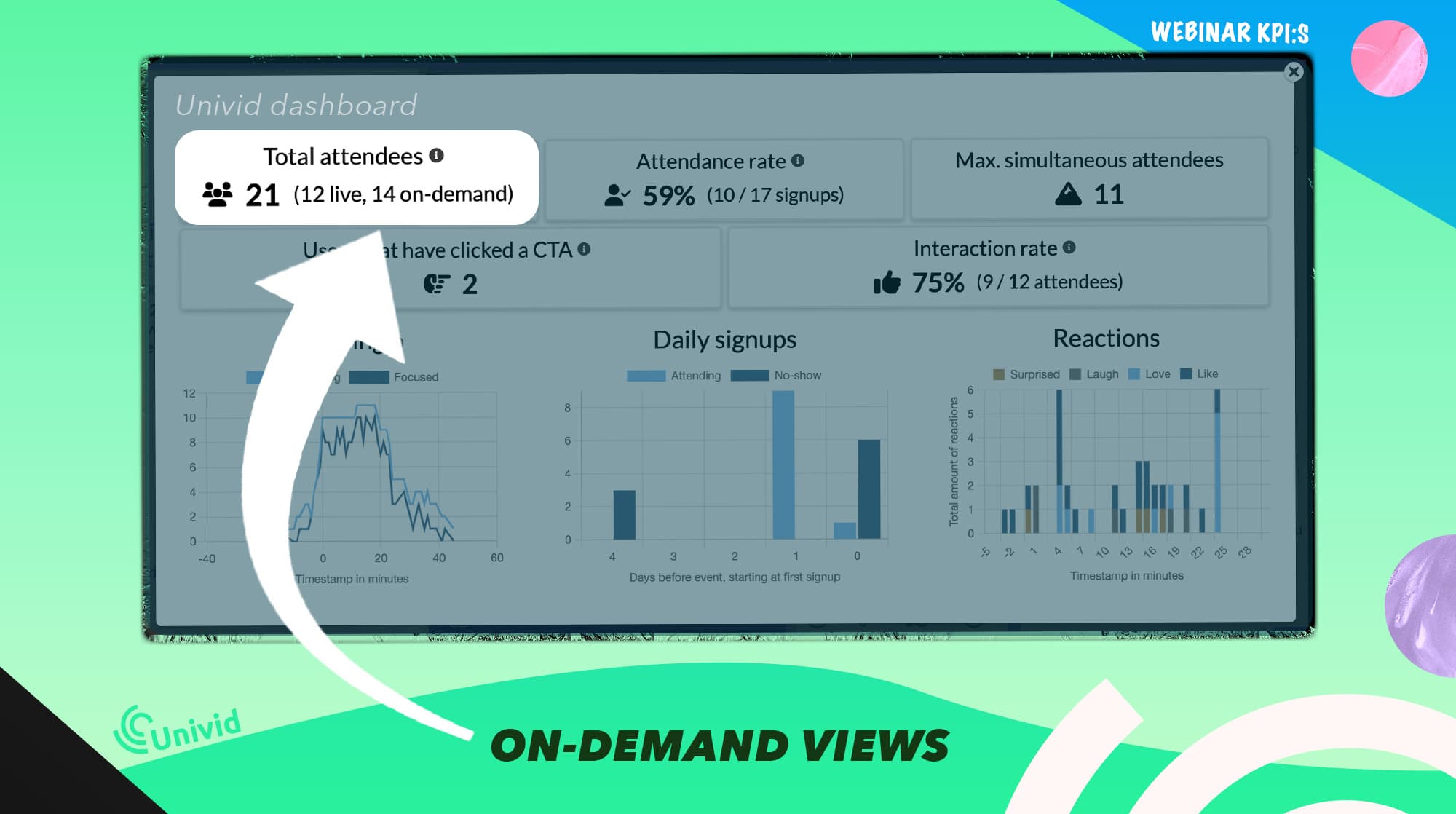
Monitoring and analyzing these webinar KPIs will provide a holistic view of your webinar’s performance. By acting on these insights, you can make sure that your webinars consistently deliver high value to your audience, and consequently drive your SaaS business's growth.
Leveraging Webinar KPIs
Monitoring these webinar KPIs can provide valuable insights that can steer your marketing strategies and ultimately enhance your SaaS business's growth.
Webinar KPIs are your secret weapon to analyze the strength of your webinar's appeal, content, and delivery—empowering you to adjust your strategies and achieve webinar success.
Conclusion
Knowing about the improvements needed, you can cater to your audience more efficiently and ultimately increase the return on your webinar investment. Stay tuned to know more about leveraging Webinar KPIs and making the most out of your webinar platform.
And check out Univid's webinar platform if you want to run smooth webinars that convert - with easy functionality to analyse and track your most important KPIs in a webinar dashboard.
Frequently asked questions (FAQs)
Q: What is a webinar KPI?
A webinar KPI (Key Performance Indicator) is a quantifiable measure which is used to evaluate the success and effectiveness of a webinar.
Q: Which are the most important webinar KPIs?
Some of the major webinar KPIs include Attendance Rate, Engagement Rate and Conversion rate.
Q: Why is it important to track webinar KPIs?
Tracking webinar KPIs provides valuable insights about your webinar's performance and reveals areas of improvements. It helps in making data-driven strategies to enhance the webinar's effectiveness.
Q: How does tracking webinar KPIs benefit a SaaS business?
For a SaaS business, tracking webinar KPIs can help understand audience behavior, measure the webinar's return on investment (ROI), and guide the marketing strategies by providing useful data.
